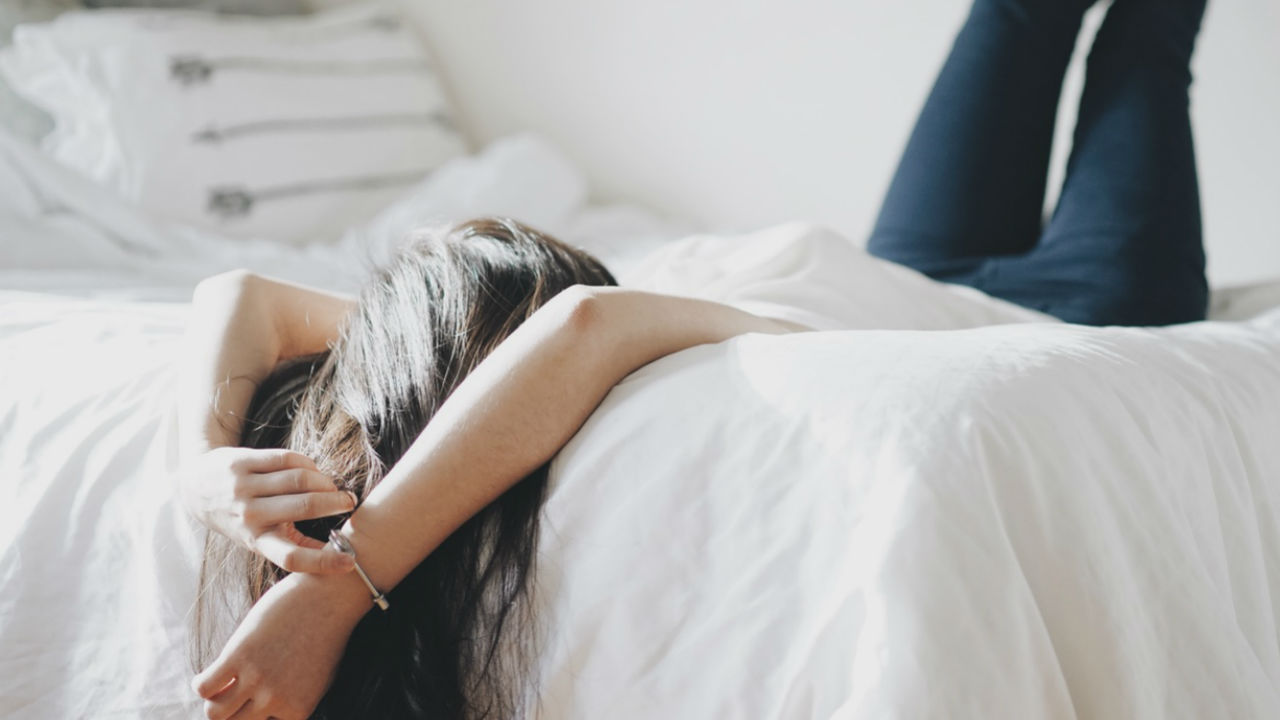 MonkeyBusiness Images/PhotoSpin
MonkeyBusiness Images/PhotoSpin
For many people, a good night’s sleep is elusive. However, simple changes to the bedtime routine can yield remarkable results.
Dr. Robert S. Rosenberg refers to these protocols as “good sleep hygiene.” He focuses solely on sleep disorders, operating a clinic devoted to the issue.
Rosenberg began his medical career in Internal Medicine, and them moved into the pulmonary field. When he was on call at all hours attending critical care patients in the Intensive Care Unit, he learned firsthand what irregular sleep patterns could do to general health.
Rosenberg referenced the National Center for Sleep Disorders Research at the National Institutes of Health, which found that approximately 30 to 40 percent of adults say they have some symptoms of insomnia within a given year. About 10 to 15 percent of adults say they have chronic insomnia.
Rosenberg stated that the American Academy of Sleep Medicine, in an article published in the journal Sleep, defined insomnia as: difficulty initiating sleep, difficulty maintaining sleep, waking up too early, or feeling sleep is of poor quality.
It should be noted that this occurs despite adequate opportunity and circumstances for sleep.
On the amount of approved shut-eye for adults, Rosenberg came in at seven to eight hours. He pointed out that less than six and a half hours can lead to obesity, high blood pressure, heart disease and stroke.
For those having sleep difficulties, Rosenberg gave me a list of behaviors that should be eliminated from daily practice in order to attain good sleeping habits:
• Avoid caffeine after 10 a.m. The effects can last in the body for 12 to 14 hours after ingesting.
• Try not to nap. If you do, it should be for only 45 minutes or less. Definitely avoid napping after 4 p.m. As the day progresses, the body works to build up an impetus to sleep through the neurotransmitter adenosine. A late afternoon sleep period throws of this progression.
• Turn off computers and other electronic devices about two hours before your targeted bedtime. They are a source of bright light that hits the retina, sending a message to the hypothalamus in the brain, which is tasked with building up the sleep-inducing hormone melatonin. The bright light disrupts the message and the ability to produce melatonin.
• Don’t fall asleep on a couch! As soon as you feel that you are drifting into slumber, relocate immediately to your bed.
• Go to bed when you are feeling sleepy. Rosenberg addressed how different stimuli can confuse what might ordinarily be our natural circadian clock . In an urban setting — noise, streetlights, and late night activities act as impediments to sleep. For others, job and family stresses can be a source of “rumination” that affects us as we try to fall asleep.
Rosenberg suggested Cognitive Behavioral Therapy (CBT) for restructuring thinking, replacing perseverative thoughts with “constructive worrying.”
One strategy he suggested was to compile a list of concerns at around 8 p.m. — and then put it away for the evening. Additionally, if fears about not sleeping have created unease, Rosenberg said, “Don’t catastrophize! Don’t blame everything on that and then take it into the bedroom with you.”
For Rosenberg, it’s all about “stimulus control.” The bedroom is a sacrosanct space —for sleep and sex only. That means no reading in bed, no television in the room, and computers and smart phones should never make it past the doorway.
If you are unable to fall asleep within 20 minutes, Rosenberg counsels leaving the bedroom and going into another room. The set-up should be a quiet, low-lighted situation.
His recommended activities included meditation and repetitive action endeavors that have a calming quality. Reading non-stimulating materials, crossword puzzles, or sewing were several suggestions. He gave the okay to gentle background music.
Rosenberg prefers no television, but if a patient says it relaxes them, he tries not to be dogmatic. When you feel yourself getting groggy (the drive to sleep), he instructs returning to bed for another try.
One of the natural approaches that Rosenberg mentioned, to get the sleep cycle on schedule, was to take 1 mg of plant melatonin two hours before the desired bedtime. Another strategy was to get a dose of “bright sunlight” in the morning, a cue for the circadian clock.
I questioned Rosenberg specifically about how sleep concerns impact women throughout the different phases of life. He noted that in high school, both sexes require nine hours of sleep.
If a young woman goes to college, this can be where a circadian disorder originates. A delayed sleep syndrome can result as bedtimes are pushed to later hours due to studying and social life.
Biologically, Premenstrual Syndrome (PMS) can also play a role. He used the phrase “sleep debt” to describe the catch-up sleep that students often engage in on weekends.
During pregnancy, it is common for women to have insomnia during the first and third trimesters. Postpartum caring for an infant can leave a woman with no regulated sleep-wake schedule for six months.
After menopause, sleep apnea is more likely to occur because there is a loss of progesterone and estrogen, which decreases the drive to breathe. Before menopause, those hormones had been protecting the airways from collapse during sleep.
Women report anxiety and depression at twice the rate as men. Therefore, they have a higher rate of insomnia because mood disorders are the major cause of insomnia.
It is important to understand that mood disorders frequently present as a comorbid of insomnia, and must therefore be addressed.
During a personal crisis, periods of life change, or even the holiday season, anyone can experience transient “acute adjustment insomnia.”
Rosenberg clarified, “In adjustment insomnia, the insomnia develops abruptly due to an event and usually resolves within a month. When the symptoms of insomnia persist beyond three months, it is then reclassified as chronic.”
Rosenberg was emphatic that it was important to remember, “We spend one-third of our lives in sleep.”
He continued, “Increased understanding of the importance of sleep will result in improved quality and duration of life. It is imperative for people to appreciate how much sleep impacts their health."
Interview: December 24, 2012 with Dr. Robert Rosenberg,
DO, FCCP
, Board Certified Pulmonary and Sleep Medicine
,
Medical Director: Sleep Disorders Center of Prescott Valley
, Sleep Disorders Center of Flagstaff
Reviewed December 27, 2012
by Michele Blacksberg RN
Edited by Jody Smith





Add a Comment1 Comments
Sleep is essential for proper cognitive and physical functioning among all people, but more so among the youth who are actively growing and engaged in various cognitive and physical learning activities. Proper sleep rejuvenates their strength and cognitive ability by enhancing the alertness, ability to concentrate and physical strength. www.cleansemart.com/sleep-aids.html In spite of the cognizance of the importance of sleep, research has shown that American teenagers are deprived sufficient sleep.
January 1, 2013 - 5:24pmThis Comment